Hemp Uses and Benefits
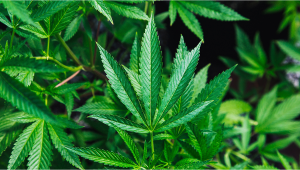
- 1. What is hemp?
- 2. What are hemp's uses?
- 3. Hemp seeds health benefits
- 3. a. Hemp seeds for reducing the risk of heart disease
- 3. b. Hemp seeds and oil for skin disorders
- 3. c. Hemp as a protein source
- 3. d. Hemp seeds for reducing symptoms of pms and menopause
- 3. e. Hemp seeds for digestion
- 4. In conclusion
Have you ever heard anyone mention the term 'hemp' when they were talking about marijuana? Probably the answer is yes.
And while some might think that hemp is just another cool-sounding way of calling marijuana plants, there are in fact some differences between hemp and marijuana.
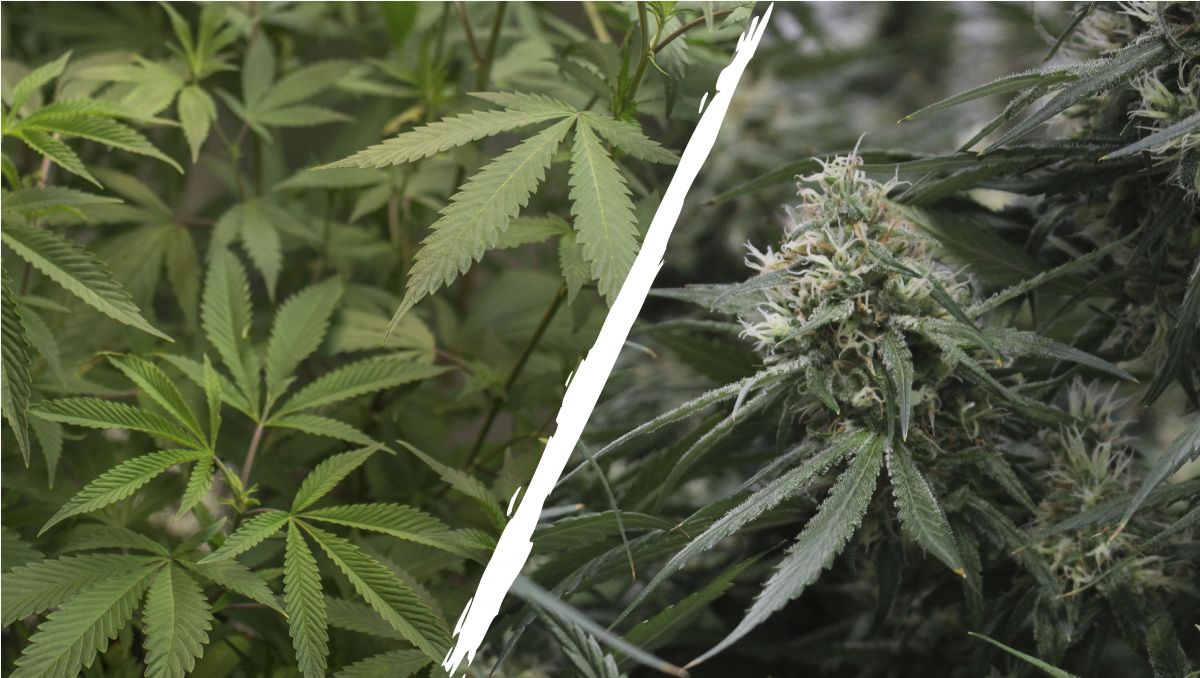
Although hemp and marijuana are both indeed classified biologically as cannabis, they differ mainly in the way each variety is used. So, what exactly is hemp and what are its uses and benefits?
1. What is Hemp?
The term hemp, or industrial hemp, is used to refer to the varieties of non-intoxicating Cannabis Sativa L., which have less than 0.3% THC content and a high CBD concentration. This means hemp is a type of cannabis plant that has no psychoactive effects.
While hemp and marijuana both come from the cannabis species, besides from their use they are also genetically distinct, differing in their chemical makeup and cultivation methods as well. Particularly, hemp is one of the fastest-growing plants.
Hemp plants are in fact one of the oldest crops to be domesticated by men. Dating back as far as the 8.000 B.C., hemp has been used for making paper, textiles, and cordage ever since, evolving to the hemp uses that we know today.1
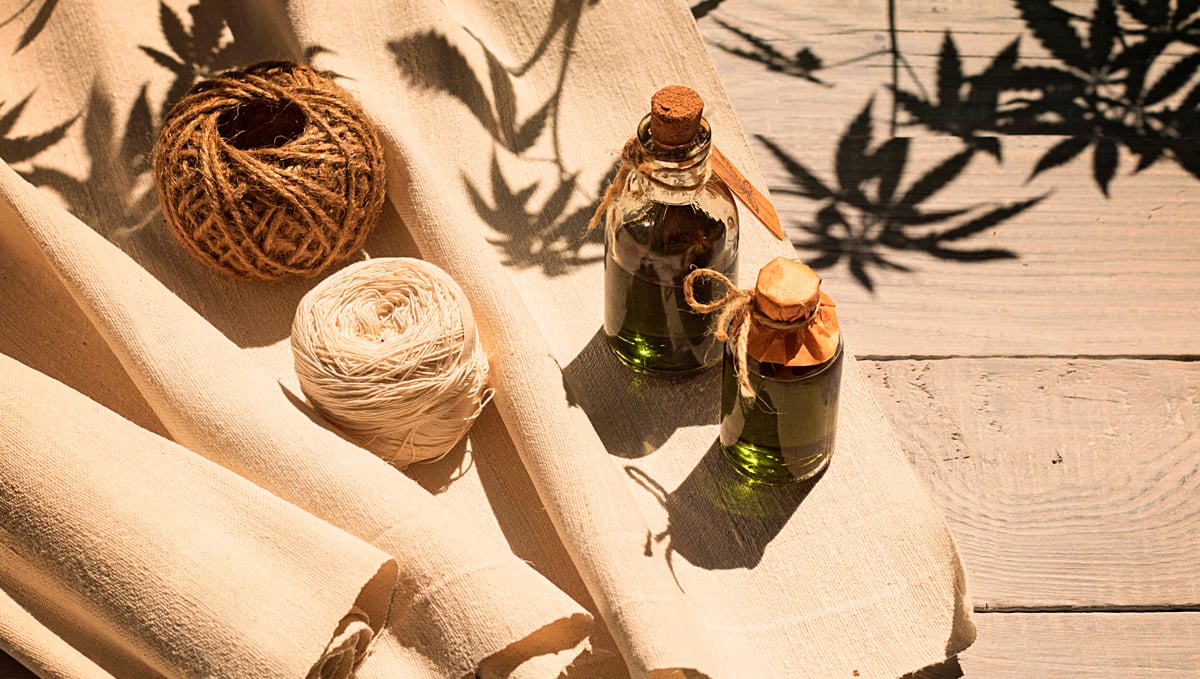
Hemp is generally grown for the industrial uses of its derived products. It can be refined into a huge variety of commercial and natural items, such as:
- Paper;
- Textiles;
- Clothing;
- Biodegradable plastics;
- Paint;
- Insulation material;
- Biofuel;
- And food, for both humans and animals.
However, hemp is also widely known for its dietary and health benefits, such as its anxiolytic and antipsychotic properties, neuro-protection, anti-inflammation and pain relief, epileptic attacks reduction, chemotherapy side effects relief, and calming parkinson's spams.
2. What Are Hemp's Uses?
Hemp uses vary in a wide range, from industrial, as we mentioned above, for making textiles and paper, to nutritional and medical. Since hemp is a renewable source for producing natural material, it can be incorporated to make thousands of different products.
Its seeds and flowers, for example, are used in foods, organic body care products, and other nutraceuticals. Hemp uses differ between its two main forms, seeds and stalk, let's check them out:
| Hemp Seeds Uses | Hemp Fibers And Stalk Uses |
|---|---|
| Oil: fuel, lubricants, ink, varnish, paint, dressings, margarine, beauty products, and cosmetics. |
Hurd: animal bedding, mulch, chemical absorbant, fiberboard, insulation, concrete. |
| Nut: bread, granola or cereal, milk or dairy products, protein powder. | Bast fiber: cordage or rope, netting, canvas, carpet, biocomposites, non-wovens, clothes, shoes, and bags. |
| Cake: animal food, flour. | Stalk: biofuel or ethanol, paper products, cardboard, filters. |
Besides from being useful for making all of these products, and more, hemp seeds consumption is full of health benefits as well.
Let's dive into hemp's dietary benefits.
3. Hemp Seeds Health Benefits
Hemp seeds are rich in nutrients, healthy fats, proteins, and several minerals, therefore, adding raw hemp seeds to our diets comes along with amazing health benefits.2
In the first place, hemp seeds are considered to be nuts, and nuts in general are all great for our diets. With their mild nutty flavor, hemp seeds, or hearts, contain more than 30% essential fatty acids, such as omega-6 and omega-3.

Hemp hearts also contain considerable amounts of gamma-linolenic acid, which is known for its anti-inflammatory and pain-relieving properties; reducing the risk of cancer; aiding heart disease; and relieving symptoms of nerve damage in patients with type 1 or type 2 diabetes, among other health benefits. 3
Furthermore, hemp seeds are a great protein source, hello vegetarians and vegans, with more than 25% of their total calories being high-quality protein. This means they contain more protein than other famous seeds, such as chia and flaxseeds, which have only 16-18% protein.
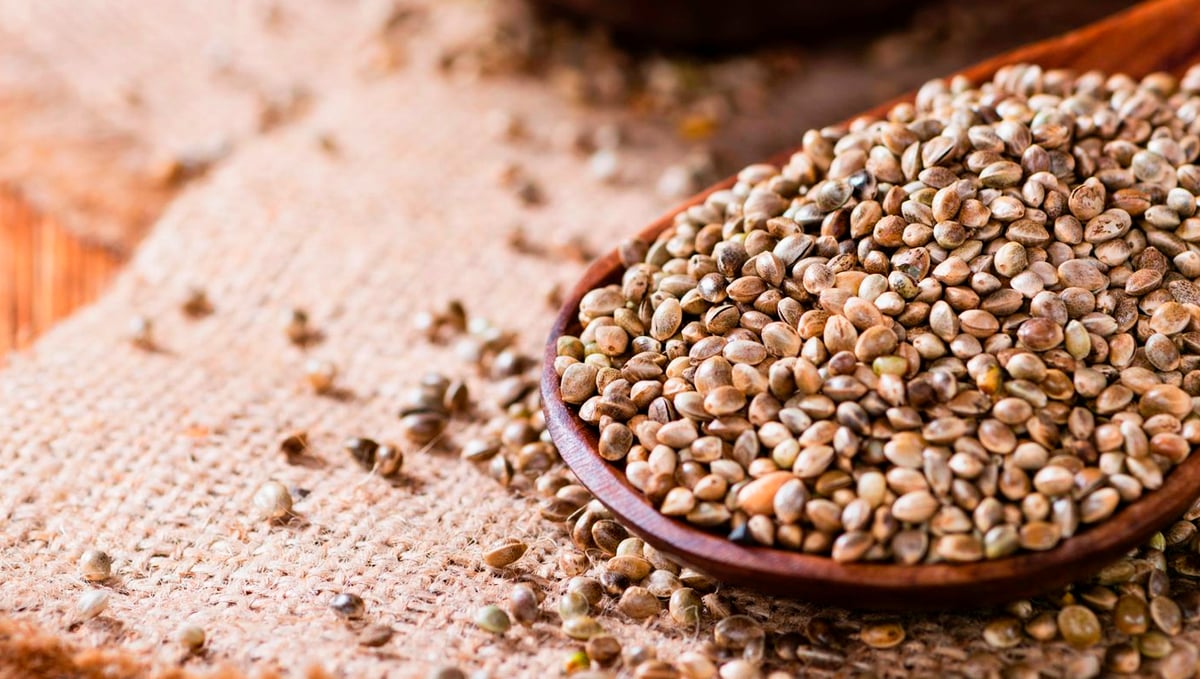
Lastly, hemp hearts also rich in vitamin E and minerals such as potassium, phosphorus, magnesium, sodium, sulfur, calcium, iron and zinc. Adding raw, cooked, or roasted hemp seeds or oil to your recipes will surely pump up the nutritious value of your plates.
Why not use hemp seeds or oil for medical purposes as well?
Hemp Seeds For Reducing The Risk Of Heart Disease
One of the biggest causes of death worldwide is heart disease. Surprisingly, or perhaps not so much, consuming hemp seeds could actually reduce the risks of heart disease as well.
Just like other nuts and as we've mentioned above, hemp seeds are full of healthy fatty acids, which are great for keeping our body and mind fresh.
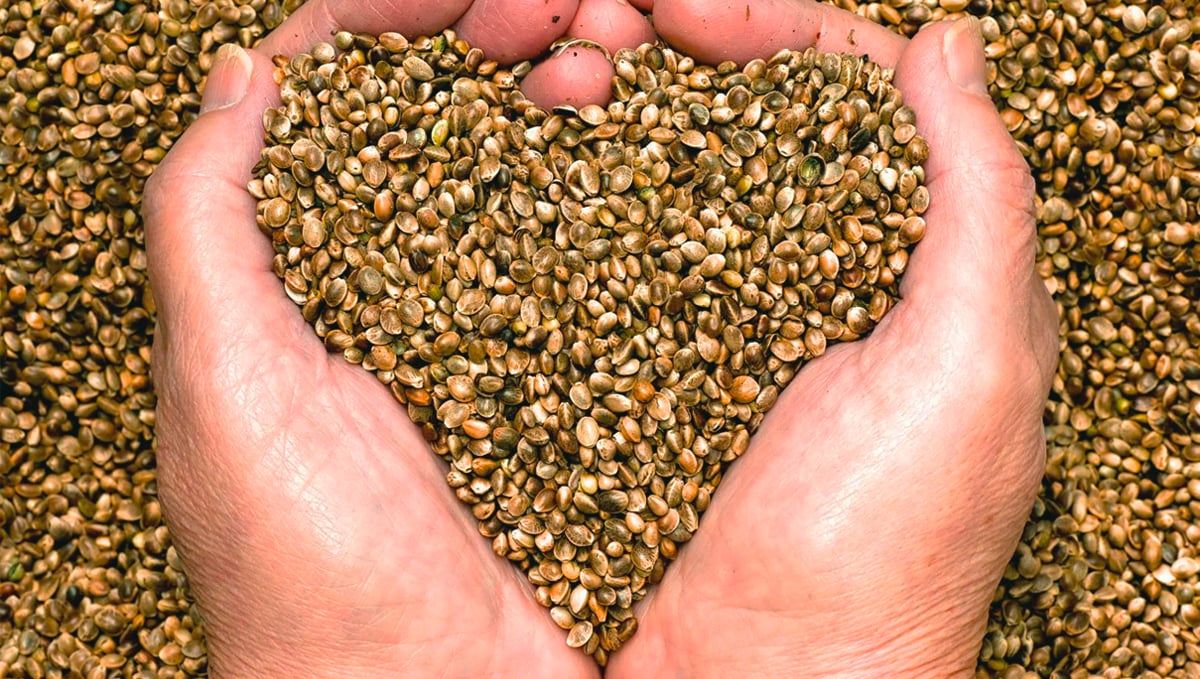
Particularly, hemp seeds contain enormous amounts of arginine, an amino acid that produces nitric oxide in the human body. Nitric oxide is a gas molecule that dilates and relaxes blood vessels in our bodies, translating into lowered blood pressure and fewer risks of heart disease.4
Hemp Seeds And Oil For Skin Disorders
Hemp is a rich source of polyunsaturated and essential fatty acids, such as the oh-so claimed omega-6 and omega-3. These fatty acids play a major role in responses in our immune system, affecting the body's immune responses.
The 3:1 ratio of these omega-6 and omega-3 fatty acids present in hemp seeds makes it the optimal range for achieving a perfect balance in the immune system.
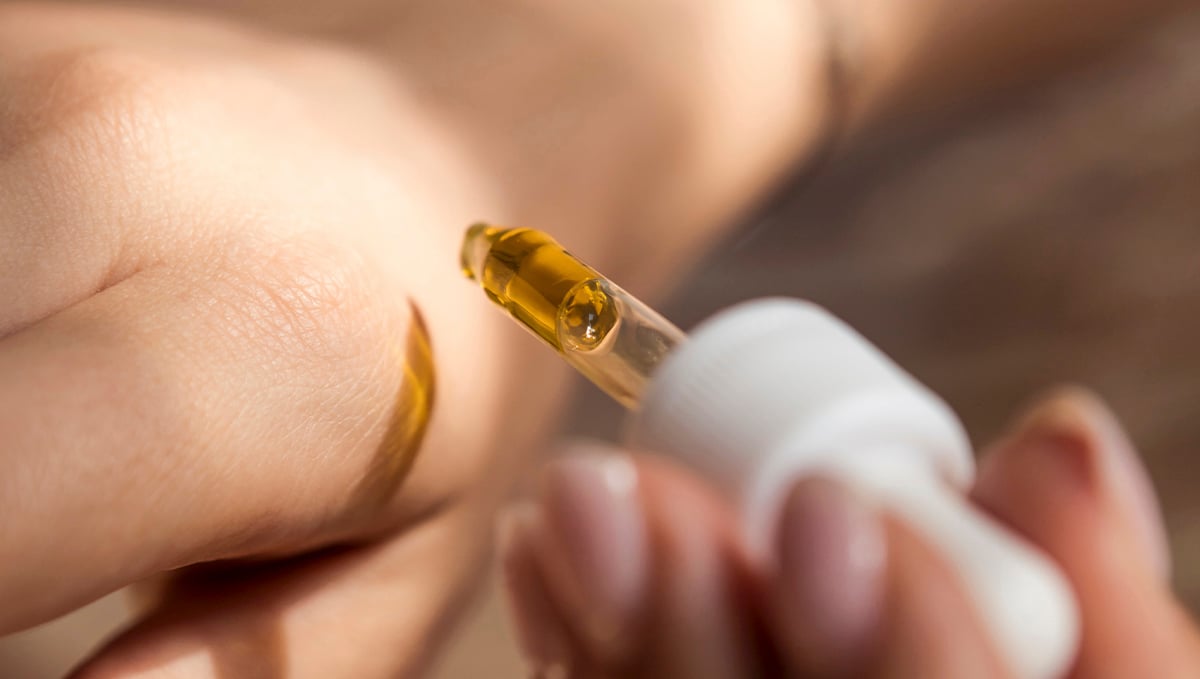
People dealing with skin conditions such as eczema or psoriasis have found that consuming hemp seed oil improved their blood levels of essential fatty acids, relieving skin dryness, improving itchiness, and reducing the need for other skin medications.5, 6
Hemp As A Protein Source
As we said above, about 25% of hemp calories come from protein, which makes it almost equivalent to the amounts of protein found in beef and lamb. Just like quinoa, hemp is considered to be a complete, plant-based protein source, providing all the essential amino acids which the body cannot produce by itself.
This said, hemp makes a great protein replacement for vegetarians and vegans looking for ways to add healthy and necessary amino acids to their diets, such as methionine, cysteine, arginine, and glutamic acid.
Hemp Seeds For Reducing Symptoms of PMS and Menopause
An 80% of women at reproductive age may suffer from premenstrual syndrome symptoms, PMS at some stage in their lives. This includes both physical and emotional pain usually caused by sensitivity to the prolactin hormone.
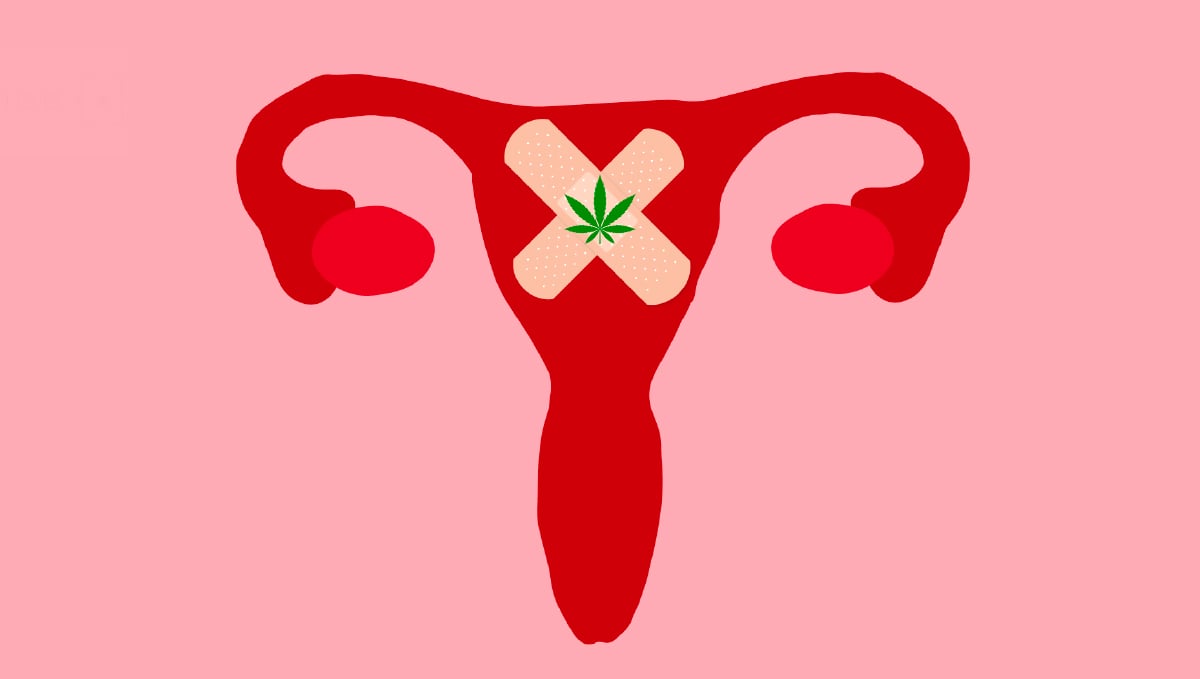
Studies have found that the gamma-linolenic acid (GLA) content found in hemp seeds produces prostaglandin E1 in the body, which has proved to reduce the effects of prolactin.7
Hemp seeds or oil also help decrease breast pain and tenderness, irritability and depression, and fluid retention, some of the most common PMS symptoms. Given hemp seeds are high in GLA, they are indicated for reducing the symptoms of menopause as well, regulating hormone imbalances and inflammation associated with it.
Hemp Seeds For Digestion
Good digestion and a healthy diet are strongly linked to fiber. Fiber is the part of plant-based foods, such as fruits and vegetables; grains, beans, and nuts, that the body can't decompose.
Since it can't break it down, fiber passes undigested through the body, keeping the digestive system clean and healthy, easing bowel movements, and flushing cholesterol and harmful carcinogens out of the body.
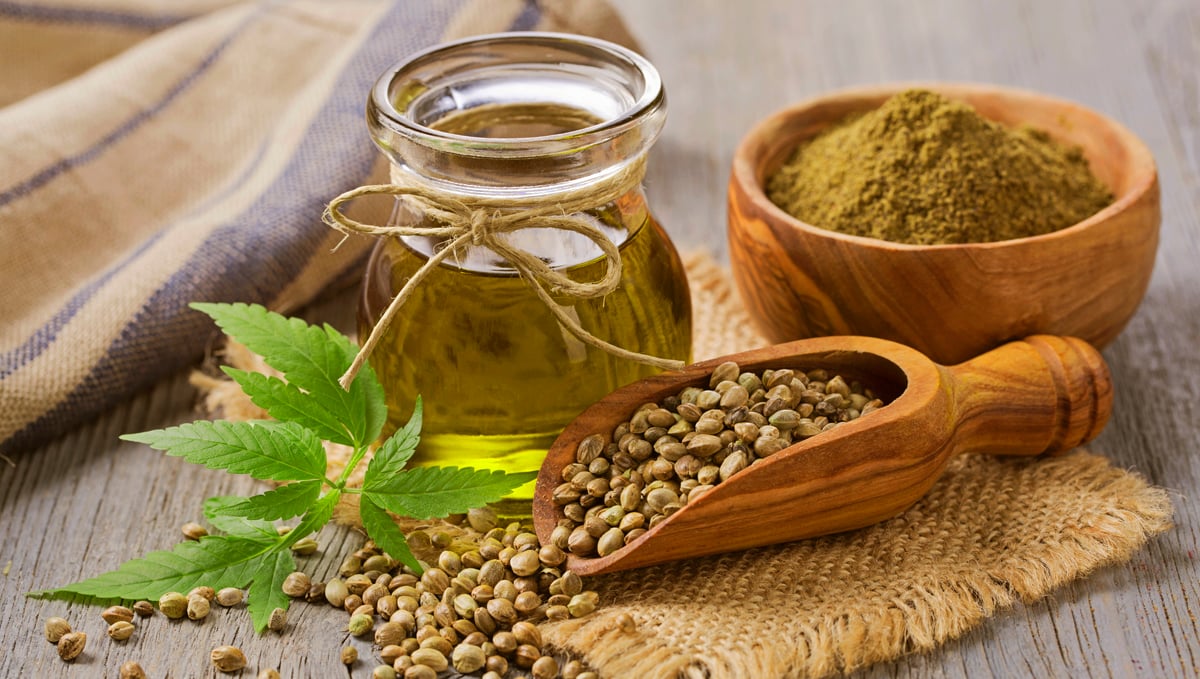
In particular, hemp seeds are a great source of soluble and insoluble fiber, with 20% and 80% content of each, respectively.
Make sure if you're looking to get the fiber properties of hemp seeds, that the ones you get aren't de-hulled because most of the fiber is nested in the seeds' shell.
Soluble fiber, on one hand, turns into a gel-like substance in the gut, which results in a valuable source of beneficial digestive bacteria, and may reduce spikes in blood sugar and regulate cholesterol levels as well.
Insoluble fiber, on the other hand, adds bulk to your stool, helping food and waste pass through the gut. Insoluble fiber has been linked to reducing diabetes risk as well.
4. In Conclusion
Hemp is a highly nutritious, healthy, and complete component in the cannabis family.
Its use dates back to thousands and thousands of years ago, for textiles, paper, and other industrial products. However, hemp's health benefits aren't of common knowledge around the globe yet, although they should be.
These non-psychoactive natural components are easy to add to your diet and they will indeed provide great properties, both medical and dietary. Why don't you try them and see the results for yourself?
EXTERNAL REFERENCES
- "Hemp: American history revisited. The plant with a divided history." Robert Deitch, 2003.
- "Nutritive quality of romanian hemp varieties (Cannabis sativa L.) with special focus on oil and metal contents of seeds" Marcela Mihoc, Georgeta Pop, Ersilia Alexa, and Isidora Radulov. October 2012.
- "Gamma linolenic acid: an antiinflammatory omega-6 fatty acid" Rakesh Kapoor and Yung-Sheng Huang. December 2006.
- "Nitric oxide and pathogenic mechanisms involved in the development of vascular diseases" Claudio Napoli and Louis J. Ignarro. August 2009.
- "Efficacy of dietary hempseed oil in patients with atopic dermatitis" James Callaway, Ursula Schwab, Ilkka Harvima, Pirjo Halonen, Otto Mykkänen, Pekka Hyvönen, and Tomi Järvinen. April 2005.
- "Plants used to treat skin diseases" Nahida Tabassum and Mariya Hamdani. January 2014.
- "The regulation of prostaglandin biosynthesis by the manipulation of essential fatty acid metabolism" D.F. Horrobin. October-December 1983.







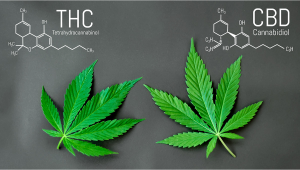



Comments